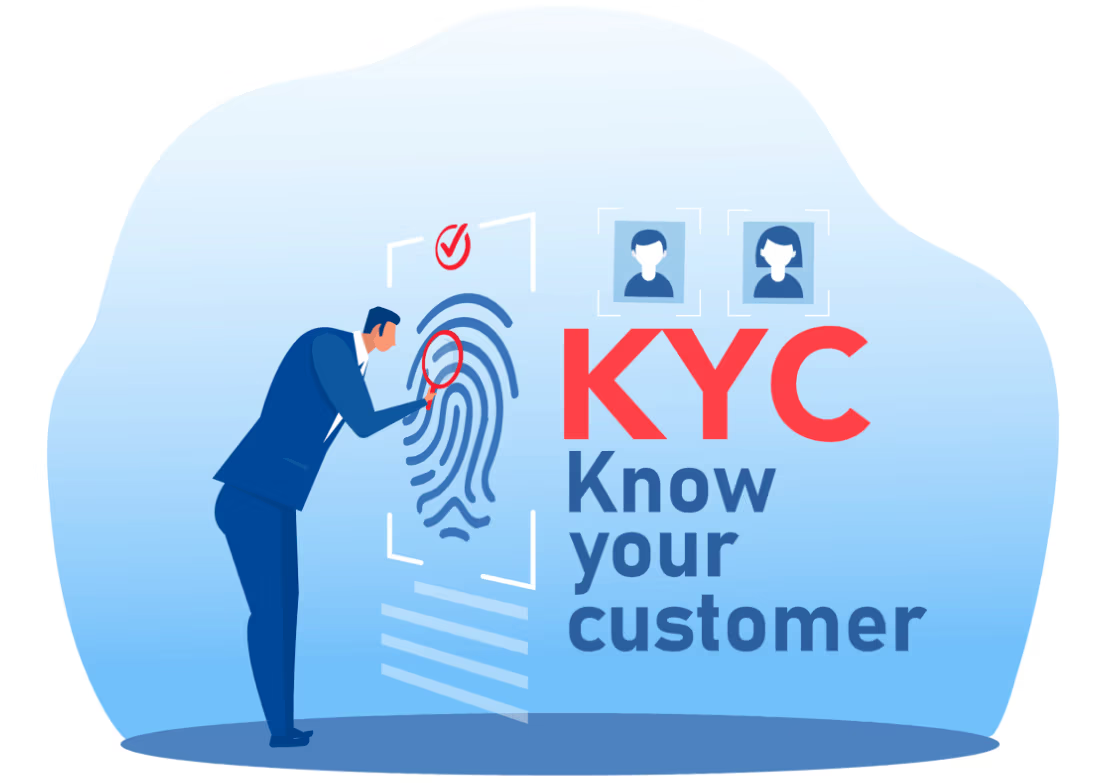Table of Contents
- What is KYC?
- The Importance of KYC in Financial Ecosystems
- KYC in the Crypto World
- How Does KYC Work?
- KYC and Compliance: Why It Matters
- The KYC Process: Step-by-Step
- Benefits and Drawbacks of KYC
- Conclusion: The Future of KYC in Finance

If you are reading this article, you’ve likely encountered the term KYC (Know Your Customer). It’s a three-letter acronym that might not scream excitement but plays a pivotal role in the financial world – especially in crypto. So, what does KYC mean? Why is it so important for Bitcoin and the crypto industry? Let’s break it down in a way that’s as approachable as your favorite meme (but way more informative).
What Is KYC?
The Basics: Know Your Customer
KYC stands for Know Your Customer. It’s a process used by financial institutions and crypto platforms to verify the identity of their users. Think of it as a security checkpoint ensuring that everyone participating in the financial ecosystem is who they claim to be. By requiring KYC, companies aim to reduce the risk of illegal activities like money laundering, fraud, and terrorism financing.
In simpler terms, KYC is about accountability. When you open an account with a bank, sign up for a crypto exchange, or invest in a financial product, you’ll likely need to pass through some form of KYC verification.
Advertisement
Join Gemini today and get $15 in free Bitcoin when you trade with an easy, secure and U.S.-regulated crypto exchange you can trust. Offer valid for U.S. residents only; crypto investments are risky.
Why Is KYC Crucial in Crypto?
The Wild West of Finance
Cryptocurrency was born as a decentralized, permissionless alternative to traditional banking systems. While this freedom is part of its appeal, it also opens the door to misuse. KYC helps regulate the space by adding layers of trust and transparency.
Here’s why it matters:
- Fraud Prevention: KYC requirements help weed out bad actors looking to exploit the system.
- Regulatory Compliance: Exchanges and wallets must comply with laws in their respective jurisdictions, and KYC ensures they’re playing by the rules.
- User Protection: Verifying identities reduces the risk of scams and allows platforms to assist users in cases of lost access or disputes.
Without KYC, crypto could become a free-for-all, and not in a good way.
How Does KYC Work?
The Step-by-Step Process
While the exact requirements vary across platforms, most KYC processes involve the following:
- Identity Verification
You’ll need to provide personal information like your full name, date of birth, and address. This is usually accompanied by government-issued identification, such as a passport or driver’s license. - Document Submission
Platforms often request a photo of your ID along with a selfie for comparison. Some even require a video verification step to ensure it’s really you. - Proof of Address
A utility bill, bank statement, or rental agreement may be needed to confirm where you live. This helps establish your legal residence. - Ongoing Monitoring
Once verified, some platforms conduct periodic checks to ensure your information remains accurate and up-to-date.
Pros and Cons of KYC in Crypto
The Good
- Trust Building: KYC fosters trust between users and platforms, reassuring both sides of the equation.
- Enhanced Security: Verified accounts make it harder for fraudsters to operate.
- Legitimacy: Platforms that comply with KYC regulations are more likely to gain mainstream acceptance.
The Not-So-Good
- Privacy Concerns: Sharing sensitive information online always comes with risks.
- Barriers to Entry: The KYC process can be time-consuming, particularly for users in regions with less robust identification systems.
- Decentralization Conflict: Some argue that mandatory KYC clashes with the ethos of crypto’s decentralized origins.
KYC Regulations Around the World
Different countries have different rules when it comes to KYC. Here are some highlights:
- United States: The U.S. has stringent KYC requirements for financial institutions, including crypto exchanges, under the Patriot Act.
- European Union: The EU mandates KYC compliance as part of its Anti-Money Laundering (AML) directives.
- Asia: Countries like Japan and South Korea are known for their strict KYC and AML frameworks.
- Emerging Markets: In developing regions, implementing KYC can be more challenging due to limited access to official identification.
No matter where you are, it’s safe to say KYC is here to stay.
The Role of KYC in Crypto Exchanges
Popular platforms like Binance, Coinbase, and Kraken require users to complete KYC before accessing full functionality. This includes higher withdrawal limits, access to advanced trading features, and even certain types of investments.
For decentralized exchanges (DEXs), the rules are less clear-cut. Many DEXs don’t currently enforce KYC, but regulatory pressure may change that in the future.
Balancing Privacy and Compliance
One of the biggest debates in the crypto world is how to strike a balance between KYC and user privacy. Technologies like Zero-Knowledge Proofs (ZKPs) and blockchain-based identity systems could offer innovative solutions, enabling users to prove their identity without revealing excessive personal data.
FAQs About KYC
1. Is KYC mandatory for all crypto platforms?
No, but it’s increasingly common on major exchanges and wallet providers due to regulatory demands.
2. What happens if I fail KYC?
If your documents don’t meet the platform’s standards, you may be denied access or limited in functionality.
3. Can KYC information be hacked?
While reputable platforms use encryption to protect user data, breaches are always a possibility. Choose platforms with a solid track record of security.
Conclusion: Embracing KYC in Crypto
So, what does KYC mean? It’s more than just a regulatory checkbox; it’s a vital tool for creating a safer, more transparent financial ecosystem. While it may feel like a hurdle, especially for crypto enthusiasts who value privacy, KYC is a necessary step toward the mainstream adoption of digital assets.
As the crypto world evolves, expect KYC processes to become even smarter, blending compliance with user convenience. After all, the goal is to build a crypto space that’s secure, inclusive, and—dare we say—future-proof.




